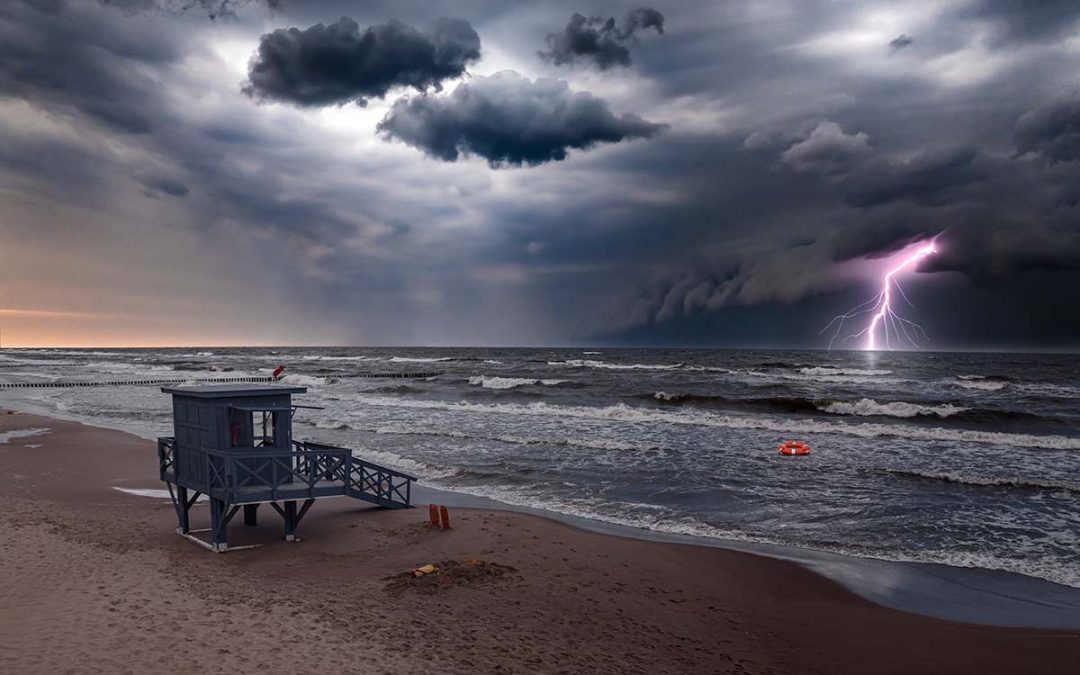How to Prepare Your Florida Home for a Hurricane: Essential Tips for Homeowners
Living in Florida means enjoying beautiful beaches, sunshine, and a tropical climate year-round. But as residents know, it also means preparing for hurricane season. When a storm is headed your way, ensuring your home is properly secured is crucial for minimizing damage and keeping your family safe. As a real estate agent in Florida, I’ve seen firsthand the impact of these storms and understand the importance of being prepared.
Below, I’ll outline a step-by-step guide to help homeowners get their properties hurricane-ready, covering everything from securing windows and doors to safeguarding important documents. Whether you’re a new homeowner or a longtime resident, these tips will help protect your home and give you peace of mind.
1. Start with a Hurricane Supply Kit
Having a well-stocked emergency kit is essential. Include the following items:
– Flashlights and extra batteries
– First aid supplies
– Bottled water (enough for 3 days per person)
– Non-perishable food items
– Prescription medications
– A battery-powered weather radio
– Important documents in a waterproof container
Make sure you have enough supplies to last at least 72 hours, as it can take time for emergency services to reach you after a major storm.
2. Secure Windows and Doors
Windows and doors are the most vulnerable parts of your home during a hurricane. Consider the following options for protection:
– Install Hurricane Shutters: These can provide excellent protection for your windows. If you don’t have shutters, boarding up windows with plywood is a reliable alternative.
– Use Impact-Resistant Glass: If you’re making long-term upgrades, consider installing windows and doors made with impact-resistant glass.
– Reinforce Garage Doors: Garage doors are particularly susceptible to high winds. Reinforce them with braces or upgrade to a hurricane-resistant model to prevent structural damage.
3. Check the Roof and Gutters
Your roof is your home’s first line of defense against the elements. A weak or damaged roof can lead to catastrophic problems if a hurricane hits:
– Inspect for Loose Shingles: Ensure all shingles are properly secured and repair any that are damaged or loose.
– Clear the Gutters: Clean out gutters and downspouts to ensure water flows away from your home’s foundation.
– Consider Roof Straps: Roof straps or clips can help secure your roof to the walls of your home, providing additional stability.
4. Trim Trees and Secure Outdoor Items
Strong winds can turn even small objects into dangerous projectiles. Take the following steps to secure your yard:
– Trim Overhanging Branches: Remove any dead or weak branches that could fall and cause damage.
– Secure Loose Items: Bring in outdoor furniture, grills, potted plants, and any other items that could become airborne in high winds.
– Anchor Large Structures: Ensure sheds, playsets, and other large items are anchored securely to the ground.
5. Check and Prepare Your Insurance Coverage
Before hurricane season, review your homeowner’s insurance policy to ensure you’re fully covered:
– Verify Coverage for Wind and Flood Damage: Standard policies may not cover all types of damage. Consider adding a separate flood insurance policy if your home is in a high-risk area.
– Document Your Home and Possessions: Take photos or video of your home’s interior and exterior, along with valuable possessions, to support any potential insurance claims.
6. Create a Family Evacuation Plan
If you need to evacuate, having a plan in place will help keep your family safe:
– Know Your Evacuation Route: Familiarize yourself with local evacuation routes and shelters.
– Plan for Pets: Not all shelters accept pets, so research pet-friendly options in advance.
– Establish a Meeting Point: Choose a location where your family can reunite if you get separated.
7. Prepare Your Pool and Landscaping
If you have a pool, it’s essential to prepare it properly before the storm arrives:
– Do Not Drain the Pool: Leave the water level as is, as draining it can cause structural damage.
– Turn Off the Pump: Shut off the pool pump and any other electrical equipment.
– Secure Pool Covers and Furniture: Remove any loose pool covers and store outdoor furniture away from the pool area.
8. Safeguard Important Documents and Electronics
Gather all essential documents, such as birth certificates, passports, insurance papers, and financial records, and store them in a waterproof and fireproof safe. Additionally:
– Back Up Digital Files: Save important electronic files on a cloud service or an external hard drive.
– Unplug Electronics: Disconnect electronics that aren’t needed, and move valuable devices to higher levels to avoid water damage.
9. Protect Your Property’s Exterior
The exterior of your home should be fortified to withstand the elements:
– Seal Cracks and Gaps: Use caulk to seal any openings around windows, doors, and vents to prevent water from seeping in.
– Install Flood Vents: Consider installing flood vents to reduce pressure from rising water and minimize foundation damage.
10. Stay Informed and Be Ready to Act
Monitor the news and weather reports regularly during hurricane season. Having a battery-operated radio on hand is essential if power goes out. Also:
– Follow Evacuation Orders: If local authorities issue evacuation orders, follow them promptly.
– Communicate Your Plan: Let friends and family know your plan and where you will be during the storm.
Final Thoughts
Preparing your home for a hurricane takes time, but it’s well worth the effort. By taking these steps, you can minimize damage, protect your property, and ensure your family’s safety. If you’re considering buying or selling a home in Florida, hurricane preparedness should always be a key consideration.
For more information on protecting your home, feel free to reach out to me—I’m here to help!
Stay safe and stay prepared!



